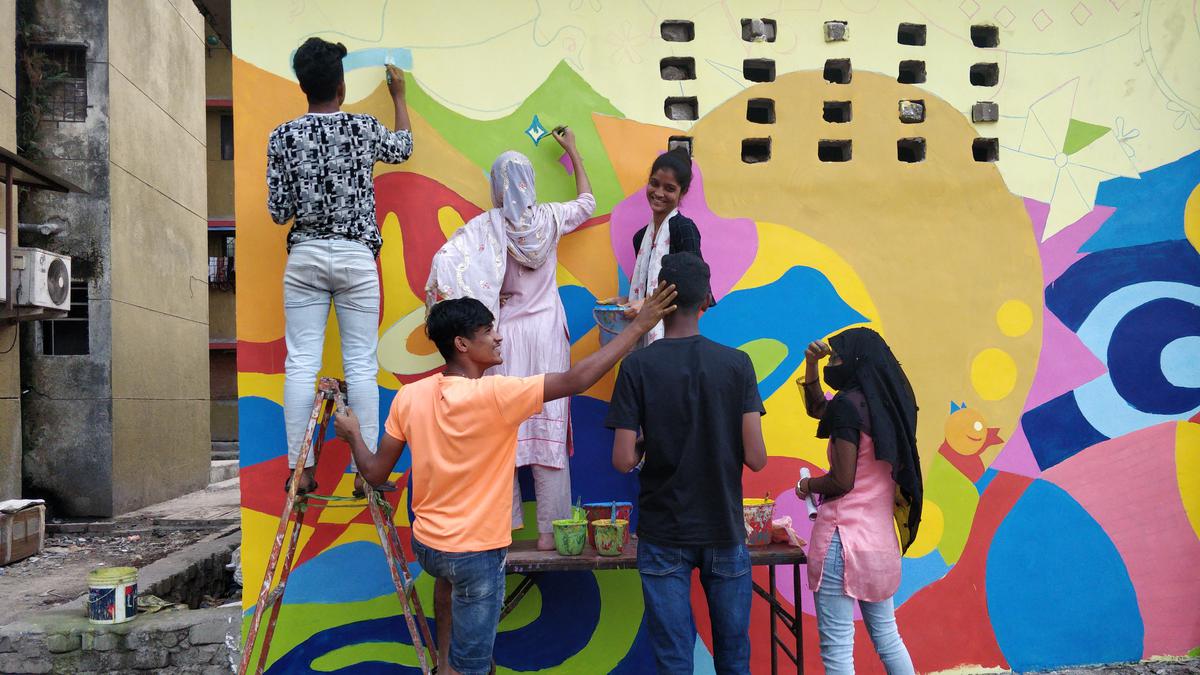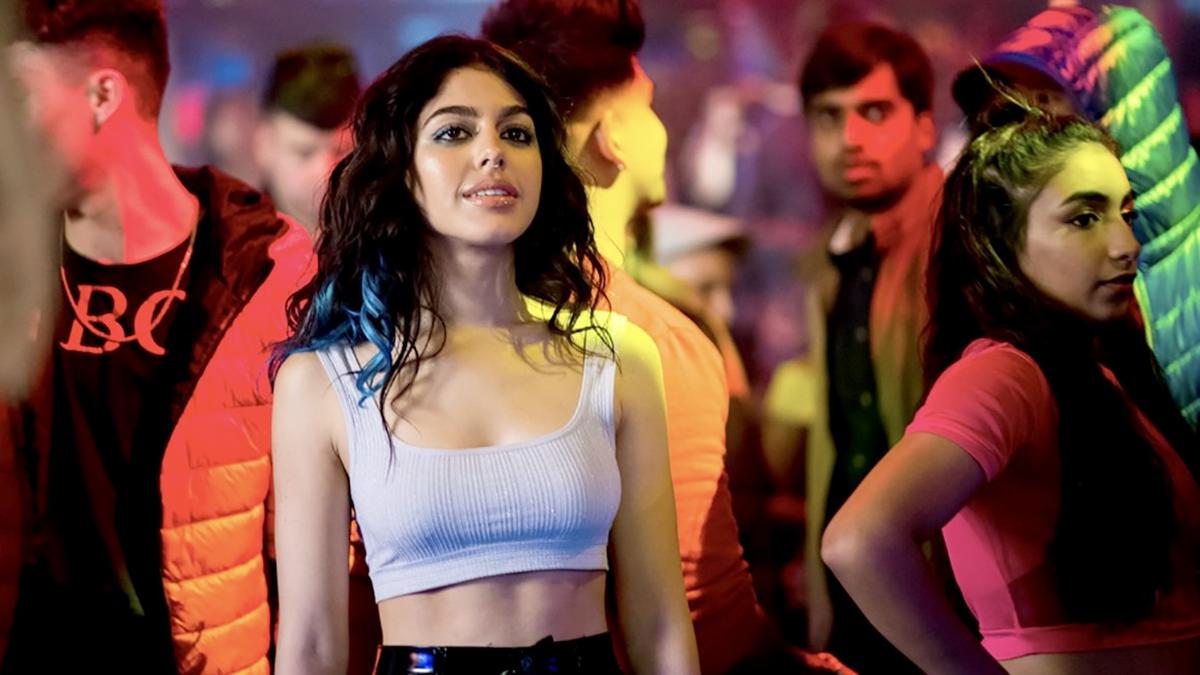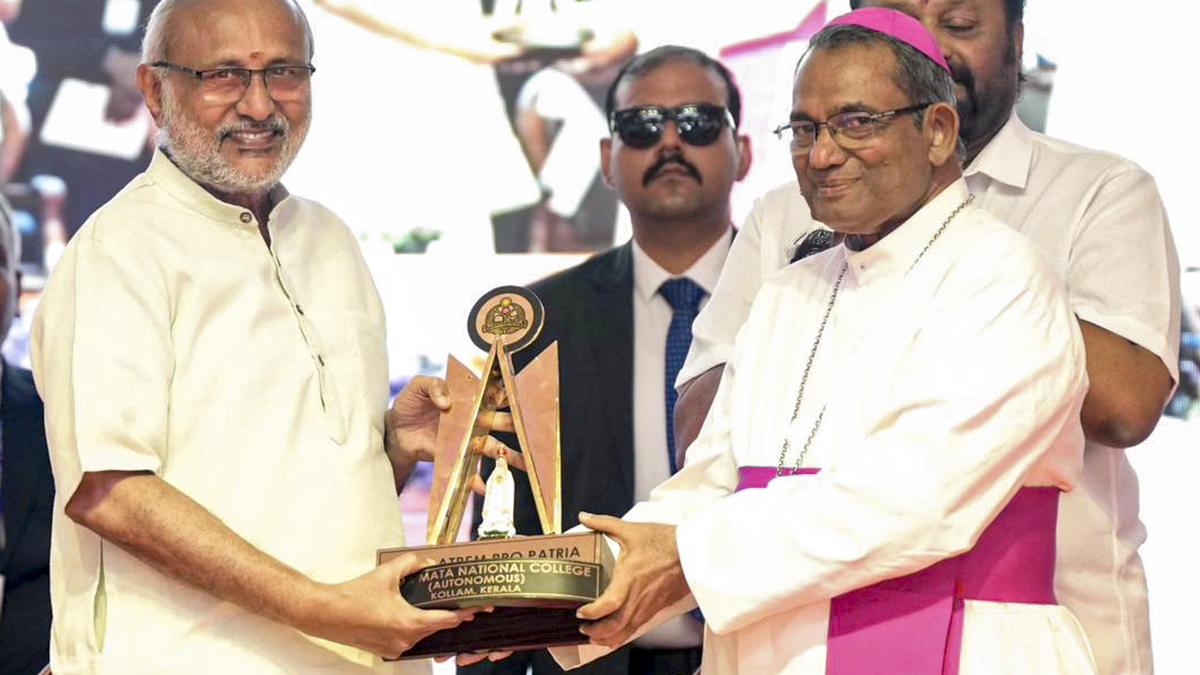Writer-director Vivek Athreya opens up on the Nani-Nazriya Telugu film ‘Ante Sundaraniki’, which he terms as a contemporary social commentary
Writer-director Vivek Athreya opens up on the Nani-Nazriya Telugu film ‘Ante Sundaraniki’, which he terms as a contemporary social commentary
Vivek Athreya, the Telugu writer-director who debuted with the romance drama Mental Madhilo and followed it up with the black comedy Brochevarevarura, is one of the promising new voices of Telugu cinema. His new Telugu film Ante Sundaraniki, a conversational drama starring Nani and Nazriya, has caught attention with its humour-laced promos. During this interview amid finalising the film’s post production, Vivek asserts that while the film appears like a humorous interfaith romance, there is a lot more at play.
Ante Sundaraniki, which will be dubbed in Tamil as Adede Sundara and in Malayalam as Aha Sundara, revolves around two worlds – that of Sundar’s (Nani) Hindu Brahmin household where traditional, at times superstitious, practices rule, and Leela Thomas’s (Nazriya) Christian household where the father has the last word.
Vivek refrains from revealing the central conflict, through which he intends to take the audiences by surprise: “This film is the story of Sundar and Leela. We are not only looking at the portions essayed by Nani and Nazriya as adults but also at things that occurred in their childhood which are crucial to the story.”
Social commentary
The idea, he recalls, came up nearly five years ago: “I thought the core issue and the story would make for an exciting, contemporary social commentary.” He was aware that he had to tread carefully without hurting religious sentiments. Vivek’s writing is usually layered and has enough room for humour, even when he discusses serious issues. In Brochevarevarura, beneath the crackling comedy was a coming-of-age story of friends, a young woman learning to assert herself, mending of a father-daughter relationship, and more. “Humour comes naturally to me. I cannot hold a serious conversation for more than a few minutes. That tendency seeps into my writing as well.”
Nani and Nazriya as Sundar and Leela in the film
Vivek had initially pitched another story that would require an ensemble cast to Mythri Movie Makers. When the production house asked if he had a story that would suit Nani, Vivek put forth the idea of Ante Sundaraniki. The actor loved the script and came on board. Both Vivek and Nani thought someone like Malayalam actor Nazriya would be perfect as the leading lady, Leela: “Then Nani suggested we approach Nazriya.”
Nazriya had not worked in any Telugu film until then and did not know the language. Vivek, however, knew that Nazriya could understand Tamil. Having worked in IBM, Chennai, for five years, Vivek is fluent in the language. He narrated the story to Nazriya over a Zoom call. “The script is non-linear. Nani suggested that I take a linear approach to the narration. She reacted with enthusiasm when I began narrating and I went ahead and gave her a detailed, non-linear narration that lasted a few hours.”
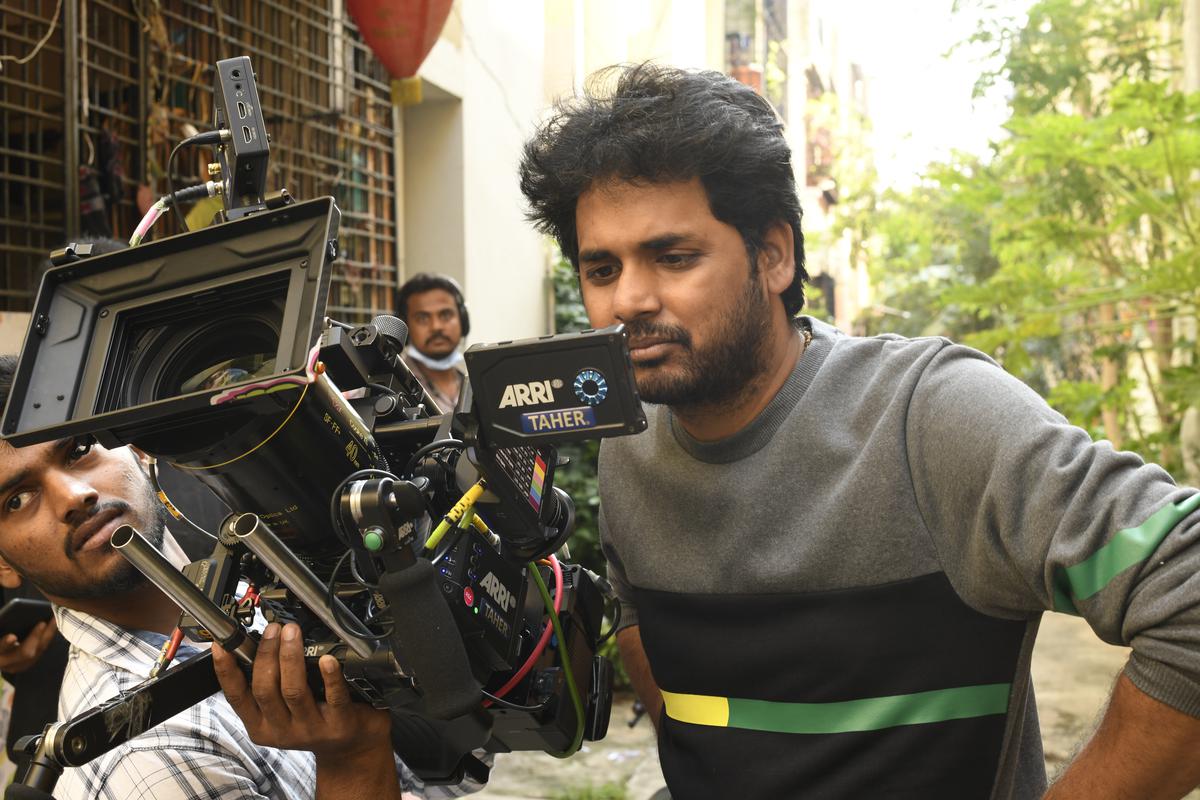
Vivek Athreya
| Photo Credit: Special Arrangement
With the help of a Telugu tutor, Nazriya learnt the Telugu dialogues and even dubbed for the film. Vivek had script reading sessions with Nani and the rest of the cast – Rohini, Nadiya, Naresh, Harshavardhan, Rahul Ramakrishna and others – before the film went on floors in summer 2021.
Music as storytelling device
Ante Sundaraniki marks the second collaboration of the director with music composer Vivek Sagar. The two decided to use traditional instruments to distinguish the worlds of the protagonists, but steer clear of cliched approaches such as engaging a choir for a Christian family.
Among the songs, ‘panchakattu’ rendered by Carnatic classical singer Aruram Sairam, is a highlight. “I am a big fan of Aruna Sairam,” says the director, who picks her fusion numbers with Agam band among his favourites.
Vivek likes to use songs as a storytelling device. He attributes his keen sense of music and storytelling to having grown up watching movies directed by K Vishwanath and Mani Ratnam and listening to Ilaiyaraaja’s music. He remembers listening to songs of Swati Kiranam, while growing up in Guntur. “There was a time when I listened to these songs every morning,” says Vivek, a self-taught filmmaker who absorbed everything he could watching films made by these doyens.
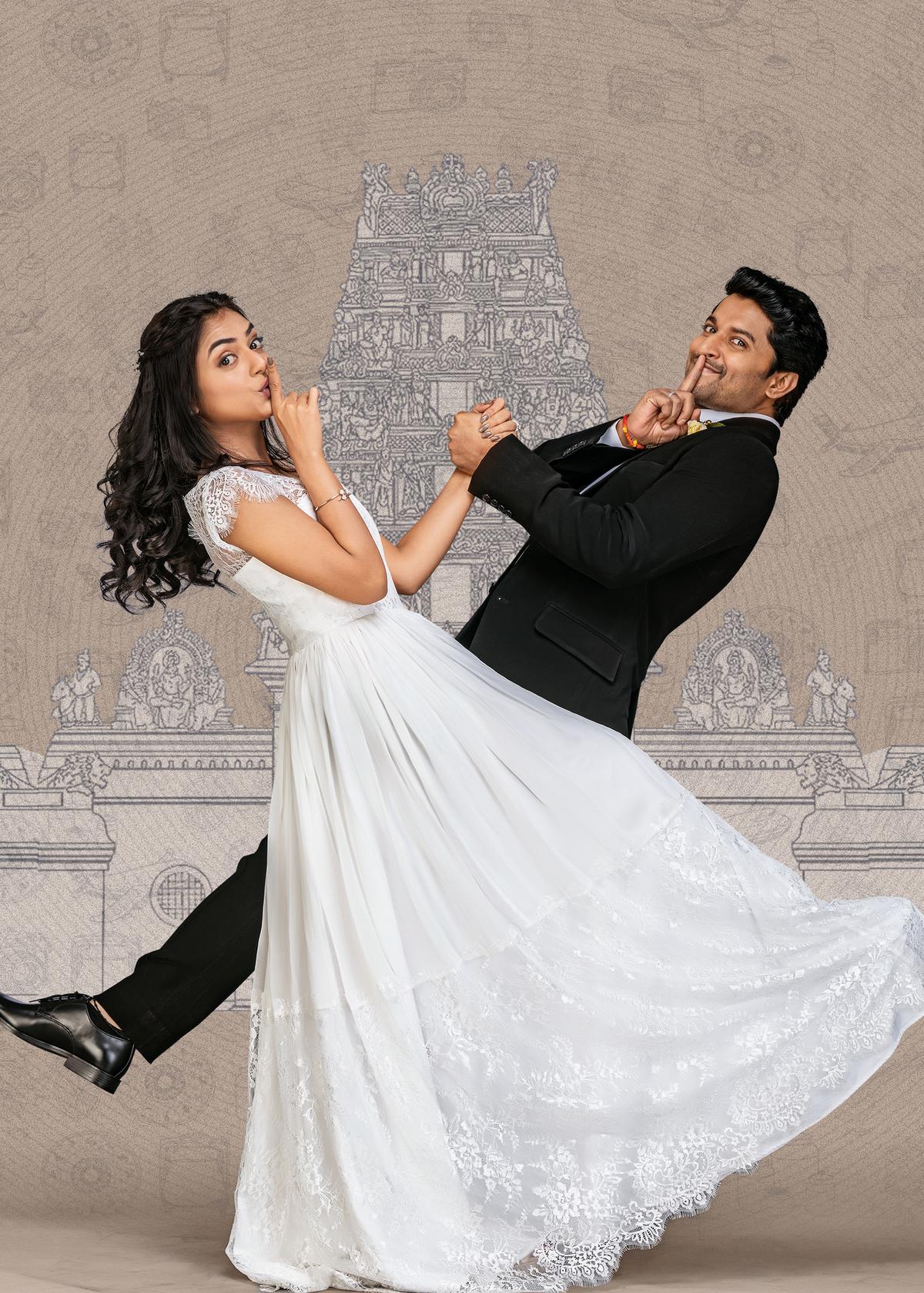
Nazriya and Nani in the film
The music of Ante Sundaraniki, he explains, was designed with an approach of the likelihood of a veteran like MS Viswanathan composing for a contemporary film that has nostalgic value, harking back to the childhood of Sundar and Leela’s childhood in the 1980s or 90s.
Vivek’s parents, who worked in India Post, were also ardent movie buffs: “I never had to hide that I went away to watch a film. My dad would ask me about the film and if I said that it was good, he would plan to watch it soon.”
Vivek’s brush with writing for cinema happened while studying B.Tech and later at IBM. “Some of my colleagues were learning the guitar. I took to writing and learning filmmaking during weekends. I cannot say I was an avid reader, but I enjoyed the writing process.”
Vivek works in isolation while writing a script and later , his team gets to weigh in. He prefers to lock in the dialogues and pre-visualisation before the film goes on floors.
Vivek emphasises that like his previous projects, Ante Sundaraniki is also a script-driven film: “It is the most important aspect of a film for me. I cannot move forward unless I have a script that I am convinced about”


.jpg)
